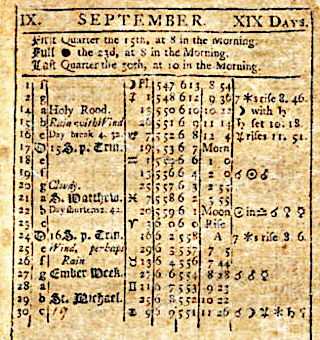The Gregorian calendar is the most widely used calendar system in the world today. It was introduced by Pope Gregory XIII in October 1582 as a reform of the Julian calendar. The main purpose of the reform was to correct the inaccuracies in the Julian calendar, which had been in use since Roman times.
The Gregorian calendar is a solar calendar that is divided into 12 months of varying lengths. It is based on the concept of a year being approximately 365.2425 days long, with leap years occurring every four years to account for the extra fraction of a day. The calendar also includes rules for determining the date of Easter, which is a moveable feast in the Christian calendar.
Gregorian Calendar September 1752
Changes in September 1752
In September 1752, the Gregorian calendar reform was implemented in Great Britain and its American colonies. The main change that occurred was the adjustment of the calendar by skipping 11 days to bring the calendar back in line with the solar year. This meant that the day after September 2, 1752, was September 14, 1752.
Another significant change was the adoption of January 1 as the official start of the year, replacing March 25, which had been the beginning of the year in the Julian calendar. This change aligned the calendar year with the civil year and established the modern New Year’s Day celebration.
Legacy of the Gregorian Calendar Reform
The Gregorian calendar reform in September 1752 had a lasting impact on the way we measure and record time. It standardized the way dates are written and calculated, making it easier to coordinate events and activities across different regions and cultures. The calendar is still in use today, with minor adjustments made over the centuries to keep it aligned with the solar year.
Overall, the Gregorian calendar reform in September 1752 was a significant milestone in the history of timekeeping and has helped to create a common framework for organizing our lives and society.
